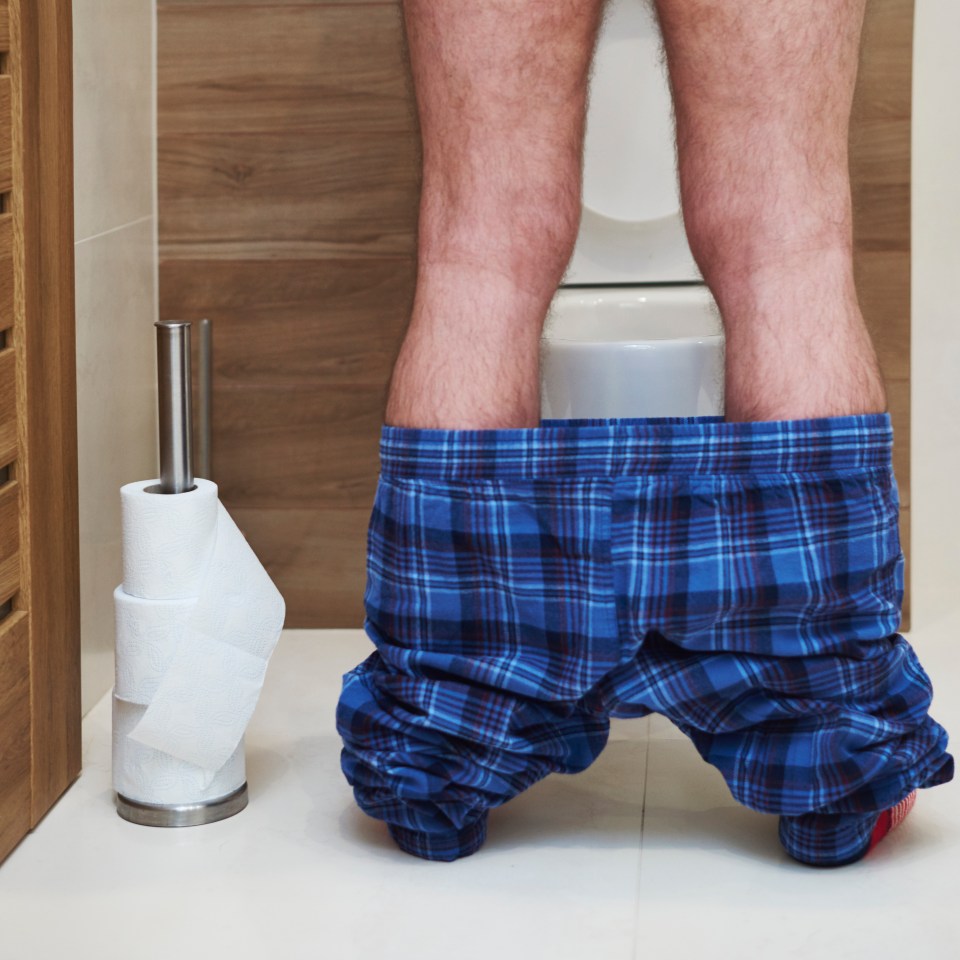DEMENTIA will affect one in three of us in our lifetime.
So it is no wonder that 54 per cent of Sun readers are worried about developing it, according to our Health Kick survey.
Meanwhile, half of us will get cancer – something that 60 per cent fear being diagnosed with.
And those concerns have increased year-on-year.
In fact, rates of both dementia and cancer in the UK are on the rise.
However, we’re seeing more people, including high-profile celebrities, talking about their experience of the illnesses, which alerts others to the warning signs.
It also shows that while we can’t change our genetics – and therefore a significant proportion of our risk – there ARE lifestyle factors within our control, at least to some degree.
In next week’s health pages, the team will be giving you the tools to help you lower your risk of both cancer and dementia.
Did you know that up to 40 per cent of both dementia and cancer cases are precentable, according to studies?
In the meantime, here’s a selection of what readers have asked me this week . . .
PERSISTENT AROUSAL GETTING ME DOWN
Q: I AM a 69-year-old virgin and I’m getting erections that last half an hour.
What can I do to make them go down? Nothing is helping. Do I need an injection?
A: While normal erections can last up to half an hour, a persistent, prolonged erection can also be due to a condition called priapism.
This unwanted erection is not caused by sexual arousal and in most cases is painful.
It is considered a medical emergency if the erection does not go down after several hours.
At this stage, there is a risk of permanent damage to the tissues of the penis and, if this is the case, you should attend the emergency department at your local hospital.
Priapism affects about half of men who have sickle cell disease, and this is the most common cause.
Other blood disorders such as thalassaemia and leukaemia can cause it, too.
Alternatively, blood-thinning medicines such as warfarin, some antidepressants, drugs including cannabis and cocaine and some medicines for high blood pressure and erectile dysfunction could be a trigger.
Sometimes no cause is found.
You’ve mentioned that you are a virgin.
This is certainly not something that would cause priapism.
The condition can be frightening and embarrassing, but it is important to seek help, because the longer it lasts, the greater the risk is of long-term damage to the penis – which can cause impotence (failure to have an erection).
As it has a number of causes – some spontaneous, and others rooted in conditions such as sickle cell disease or leukaemia, the doctor may recommend various treatment options.
An injection (which usually is a medication that helps to constrict blood vessels and reduce blood flow to the penis) is not necessarily the first line of treatment, as it would depend on the underlying cause.
It is best to get a professional evaluation to determine the appropriate course of action.
Night-time toilet trips affect my kip
Q: FOR the past two years, I have had to get up twice a night to use the toilet.
I am teetotal and my last drink of water is about 10pm to take medication.
My rest is badly affected and I desperately need a full night’s sleep. I have tried pelvic floor exercises but that hurts my stomach after a couple of days.
I am 52 years old, I eat healthily and I’m not overweight.
A: What you’re describing is called nocturia, a condition that causes you to empty your bladder two or more times during the night.
One in three adults over the age of 30 will have nocturia, so it’s very common and it increases in prevalence as we get older. How to manage nocturia will depend on its cause.
In addition to ageing, causes include urinary tract infections, caffeine, alcohol, some medications, underlying medical conditions such as diabetes, as well as menopause in women and prostate issues in men.
Strengthening the pelvic floor is generally a good idea for most of us, and it’s best to start gently and build up.
Stomach soreness would suggest that you may be strengthening the abdominal muscles rather than the deeper ones in the pelvis.
Some guidance on this may be helpful and you can buy devices that can help guide you too.
Ultimately, I’d advise you to see a healthcare professional.
In the meantime, I’d like to share some useful advice from a professor of sleep.
Our sleep cycles last around 90 minutes and in between them, we have a period of light sleep and often brief awakenings.
These do not affect us negatively but it’s in these moments we might notice the urge to use the loo.
It is important that if you do get up to use the toilet, you do not turn on too many lights, look at your phone or check the time.
These can prevent you from getting back to sleep when you return to your bed.
Q: HOW can I get my sense of smell back?
A: A lot of people know that the medical term for loss of smell is anosmia, because it was a common symptom of Covid-19.
It’s now known that other viral infections, including those that cause the common cold, can also cause anosmia.
Other common causes include nasal or sinus issues, brain injury and conditions which can cause nerve degeneration.
No cause is identified for one out of five cases.
Anosmia brought on by viral illnesses may improve with “smell training”, which involves repeated exposure to odours – and this can potentially lessen but not cure the symptoms.
Smell retraining is one of the things that can help.
It involves buying a kit or making potions yourself with essential oils.
The smells are quite strong and the thinking is that this can sometimes trigger the nerve endings to start stimulating again.
In the UK, charities AbScent and Fifth Sense offer advice and support for those with anosmia, along with smell retraining kits, and information on how to make your own.
There are important safety considerations when someone has lost their sense of smell, as we depend on it to alert us to smoke, leaking gas and poisonous gases and smells from food which has gone off.
So it is important to ensure other safety measures are in place.
This includes smoke and carbon- monoxide detectors.
Ideally, opt for electric over gas appliances and pay careful attention to use-by dates on food.
Tip of the week
THE NHS is under intense pressure, with winter bugs such as flu and norovirus rife at the moment.
So, when someone in your family falls sick, it’s important to keep on top of disinfecting surfaces, including doorknobs, light switches and stair rails, to prevent the whole family getting ill.
INTIMATE MOMENTS CAN GIVE YOU KEY CANCER POINTERS
MEN can help their partners by looking out for signs of cervical cancer, experts say.
Signs of the disease can crop up during the most intimate moments.
As it is Cervical Cancer Prevention Week, Lorraine Grover, psychosexual nurse specialist at Oxford Online Pharmacy, suggests how you can help:
PAIN DURING SEX: This shouldn’t be ignored.
Lorraine says: “If it’s persistent and your partner describes a sudden, sharp, burning pain or deep pelvic discomfort during or after intimacy it could be worth looking into.
“Cervical cancer can cause inflammation or even press on surrounding tissues and nerves, leading to pain.
“And this could happen on other occasions separate from sexual activity too – showing up as a dull ache, a twisted or knotted feeling, or cramping, which may come and go.”
SPOTTING: Bleeding between periods or after menopause – when bleeding shouldn’t occur at all – is called spotting.
One of the most common symptoms of cervical cancer is bleeding from the vagina, which may happen after sex.
Cervical cancer can cause changes to the blood vessels and cells in the cervix, which makes them more fragile and more likely to bleed during or after intimacy.
Lorraine said: “If you spot this, keep a note of when it happens and gently bring it up with your partner, to encourage them to get checked.”
DISCHARGE: Emissions from the vagina that smell strong, contain blood or are watery could indicate cervical cancer.
Lorraine said: “Tumours in the cervix can cause irritation and excess fluid production, sometimes mixed with blood or infected tissue.
“This can easily be mistaken for an infection so don’t jump to conclusions – encourage your partner to see a doctor.”
BLOATING: This can be a sign of cervical cancer. In some advanced cases, the disease causes a urine build-up in the kidneys, making hands, ankles and feet swell.
“So, if you notice swelling or persistent bloating, keep track of symptoms and delicately ask your partner if they have seen anything unusual,” Lorraine said.
UNINTENTIONAL WEIGHT LOSS: This can be a red flag symptom of cancer.
Lorraine explained: “Our bodies produce small proteins called cytokines when trying to stave off infection.
“Cytokines break down fat at a higher rate than normal, which means you continue to lose weight, no matter how much you’re eating.”
Fatigue can be another common sign of cervical cancer, as the body uses more energy to fight inflammation or infection.



